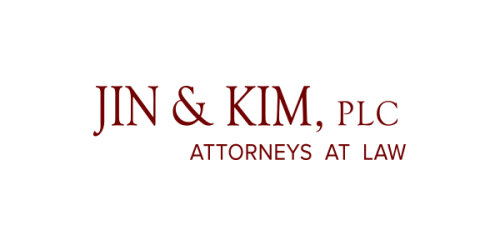Best Banking & Finance Lawyers in South Korea
Share your needs with us, get contacted by law firms.
Free. Takes 2 min.
Or refine your search by selecting a city:
List of the best lawyers in South Korea
About Banking & Finance Law in South Korea
Banking and Finance law in South Korea is a critical aspect of the nation's dynamic economic landscape. South Korea's financial sector is characterized by its robustness and efficiency, driven by numerous financial institutions including commercial banks, investment firms, and insurance companies. The legal framework governing these entities ensures stability, transparency, and protection for both local and foreign participants. Key financial regulatory bodies, such as the Financial Services Commission (FSC) and the Financial Supervisory Service (FSS), play a vital role in supervising and regulating financial services, including overseeing compliance with international standards.
Why You May Need a Lawyer
Individuals and businesses in South Korea may seek legal assistance in Banking and Finance for various reasons:
- Regulatory Compliance: Navigating the complex regulatory requirements and ensuring compliance with local and international standards can be daunting without expert legal advice.
- Dispute Resolution: Legal representation may be necessary to resolve financial disputes, including those related to loans, investments, and financial misconduct.
- Transactional Support: Lawyers can provide crucial support in drafting and negotiating financial agreements, such as loan contracts and securities transactions.
- Risk Management: Advising on strategies to manage financial risks effectively and mitigate potential liabilities.
- Mergers & Acquisitions: Legal expertise is critical in facilitating smooth financial transactions during mergers and acquisitions.
Local Laws Overview
Key aspects of local laws relevant to Banking and Finance in South Korea include:
- Banking Act: Governs the establishment, supervision, and regulation of banking institutions.
- Financial Investment Services and Capital Markets Act (FISCMA): Regulates financial investment services and capital market activities to ensure investor protection and fair market practices.
- Credit Information Use and Protection Act: Protects personal credit information and promotes its appropriate use.
- FSC and FSS Guidelines: Sets out regulatory guidelines and directives that financial institutions must adhere to.
- Anti-Money Laundering (AML) Standards: Enforces strict AML regulations to combat financial crimes.
Frequently Asked Questions
What is the role of the Financial Services Commission in South Korea?
The Financial Services Commission (FSC) is the regulatory authority responsible for oversight and development of the financial services industry in South Korea, including supervision of banking, securities, and insurance sectors.
How can I ensure compliance with financial regulations?
Compliance involves staying updated on regulatory changes, understanding applicable laws, and seeking professional legal advice to ensure adherence to all regulatory requirements.
What are some common financial disputes in South Korea?
Common financial disputes include those related to loan defaults, investment fraud, and breach of contract between financial institutions and their clients.
What is FISCMA?
The Financial Investment Services and Capital Markets Act (FISCMA) is a comprehensive law that governs the financial investment services and capital markets in South Korea, focusing on investor protection and transparent market activities.
How stringent are South Korea's anti-money laundering laws?
South Korea has stringent anti-money laundering laws to prevent financial crimes, requiring financial institutions to implement robust measures for detecting and reporting suspicious activities.
Are there any restrictions on foreign financial institutions operating in South Korea?
Yes, foreign financial institutions must comply with local regulations and may be subject to specific entry and operation requirements set by the FSC and FSS.
How does the law protect credit information in South Korea?
The Credit Information Use and Protection Act regulates the collection, use, and protection of credit information to safeguard individuals’ privacy and data security.
What is necessary for a merger or acquisition in the banking sector?
In the banking sector, mergers and acquisitions require careful legal and regulatory scrutiny, including due diligence, compliance with antitrust laws, and possibly approval from financial regulators.
Can legal counsel assist with cross-border financial transactions?
Yes, legal experts can assist with structuring, negotiating, and executing cross-border financial transactions, ensuring compliance with both local and international laws.
Where can I find reliable financial laws and regulations in English?
Many financial laws and regulations are available in English on official government websites, or you can seek translations through legal firms specializing in banking and finance.
Additional Resources
Here are some resources that can provide further assistance:
- Financial Services Commission (FSC): Provides regulatory information and guidelines.
- Financial Supervisory Service (FSS): Offers supervision and evaluation of financial entities.
- Korean Bar Association: Offers resources to find licensed legal professionals in Korea.
- Korea Chamber of Commerce & Industry: Provides information and resources on economic regulations.
Next Steps
If you need legal assistance in Banking & Finance in South Korea, consider these steps:
- Identify Your Needs: Clearly define the nature of your issue or transaction.
- Seek Professional Advice: Contact a legal expert or law firm specializing in Banking & Finance law to discuss your situation.
- Consult with Multiple Sources: Consider consulting with a few legal professionals to gather varied advice and perspectives.
- Review Legal Credentials: Ensure the legal expert is licensed and has relevant experience in South Korea’s financial laws.
- Prepare Documentation: Gather all relevant documents and information for a more productive consultation.
- Follow-Up: Maintain active communication with your legal advisor and regularly seek updates on your case or transaction.
Lawzana helps you find the best lawyers and law firms in South Korea through a curated and pre-screened list of qualified legal professionals. Our platform offers rankings and detailed profiles of attorneys and law firms, allowing you to compare based on practice areas, including Banking & Finance, experience, and client feedback.
Each profile includes a description of the firm's areas of practice, client reviews, team members and partners, year of establishment, spoken languages, office locations, contact information, social media presence, and any published articles or resources. Most firms on our platform speak English and are experienced in both local and international legal matters.
Get a quote from top-rated law firms in South Korea — quickly, securely, and without unnecessary hassle.
Disclaimer:
The information provided on this page is for general informational purposes only and does not constitute legal advice. While we strive to ensure the accuracy and relevance of the content, legal information may change over time, and interpretations of the law can vary. You should always consult with a qualified legal professional for advice specific to your situation.
We disclaim all liability for actions taken or not taken based on the content of this page. If you believe any information is incorrect or outdated, please contact us, and we will review and update it where appropriate.
Browse banking & finance law firms by service in South Korea
South Korea Attorneys in related practice areas.
Browse banking & finance law firms by city in South Korea
Refine your search by selecting a city.
















